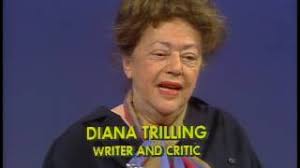34. Edward Ball
“Constant Lecorgne was a family hero of sorts. That is, he was a hero before standards changed, and his memory became too hot.” -Edward Ball
Edward Ball’s memoir Life of a Klansman is a dicey bit of business, so I suppose I wasn’t too surprised when the review of the book I had been assigned to write was killed by my editor. Klansman is Ball’s attempt to resurrect the life of his great-great-grandfather Polycarp Constant Lecorgne, a downwardly mobile, frequently unemployed carpenter/white supremacist who lived in New Orleans during Reconstruction. While technically not a member of the K.K.K., which was largely Protestant, the “Klansman” Lecorgne was involved with similar, Catholic militia groups that aimed to undo the aims of Black equality in the postbellum South. In that capacity, he participated in at least one, and probably many more, guerrilla actions against both the Black citizens of New Orleans and the Republican Reconstruction government that aimed to empower them.
Ball’s book does a fine job of recreating not only Lecorgne’s life but the culture of both ante- and postbellum New Orleans. He skillfully delineates the complex social dynamic that existed in the city before the Civil War, where slaves, free mixed-race people, white people of French descent like Lecorgne, and the increasingly influential Américains, the Anglo-Protestants who had been steadily flocking to New Orleans since the 1803 Louisiana Purchase, lived in an uneasy equilibrium. For people like Lecorgne, the pinch was in on all sides. He and his fellow French-descended whites were heavily invested in setting themselves up as superior to the Black population, but many of the free mixed-race people were accomplished professionals that had considerably more money and status than they did. On the other hand, Lecorgne and his community found themselves continually losing ground to the influential Protestants that were increasingly coming to dominate New Orleans culture. For a small-minded, ineffectual jobber like Lecorgne, all these elements, combined with his own failing financial status, the trials of the Civil War, and the humiliation that followed, led to a resentment that found its outward expression in racialized violence, a mindset that Ball vividly evokes.
Ball, though, is after more than recreation, he’s after implication, and this is where things get complicated. While he’s right to point out that he and every other white American living today has benefited, even if only indirectly, from the efforts of white supremacist terrorists like Lecorgne, his attempts at understanding/self-implication lead him to take the bold step of using free indirect discourse to embody his subject’s racist attitudes. And this is where my review ran into hot water. In order to grapple with this strategy, I quoted (probably unwisely) a long passage from the book in which Ball, writing from the perspective of racist postbellum whites, slips into their language and attitudes. The passage (along with others like it) is replete with both racial slurs and racist descriptions and it’s written without the distancing that quotation marks would have provided, the words of his ancestor instead seeping directly into Ball’s own language.
To the extent that Ball’s is an attempt to bring to life the mind of the south (to quote the title of a much earlier attempt at understanding the white southern psyche, one that also occasionally employs a similar technique), I can understand what he’s after. But as my editor put it to me when we discussed my piece, “What gives him the right to use the N-word?” Safe to say, I didn’t have an answer to that question. I also didn’t really have an answer to the question of how to best assess Ball’s bold strategy. Did I think it was effective at bringing to life Lecorgne’s inner life? Maybe. Did I think it was appropriate? Well, no.
But I wasn’t sure how to properly address it in a review. Clearly the quote would need to be cut out and, if anything, merely described. But, beyond that, how central was this bit of free indirect business to the book as a whole? If I didn’t approve of Ball’s strategy, did it invalidate the whole book? I didn’t want it to, as there was much I admired in the memoir and thought was valuable. But I couldn’t not mention it and once I mentioned it, it would inevitably overshadow everything else I had to say. I didn’t see a good way forward and neither did my editor. He suggested paying me a kill fee and moving on and I didn’t say no. Damned for this fatal miscalculation, Ball’s book was, at least as far as this publication was concerned, removed from the realm of public discussion. I mostly agree that that was right.



Comments
Post a Comment